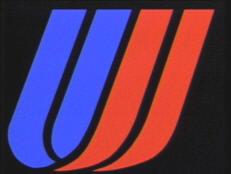Tue, Jun 08, 2004
$2.5 Million In Civil Penalties For FAR Violations
 The FAA wants to assess civil
penalties totaling $2.5 million against Atlantic Coast Airlines and
United Airlines for allegedly violating Federal Aviation
Regulations (FARs). The FAA alleges both airlines failed to follow
required maintenance actions on specific aircraft, and further
operated those aircraft when they were not in compliance with
regulations.
The FAA wants to assess civil
penalties totaling $2.5 million against Atlantic Coast Airlines and
United Airlines for allegedly violating Federal Aviation
Regulations (FARs). The FAA alleges both airlines failed to follow
required maintenance actions on specific aircraft, and further
operated those aircraft when they were not in compliance with
regulations.
The FAA proposes to assess a civil penalty of $1.5 million
against Atlantic Coast Airlines (now doing business as Independence
Air) for operating several of its aircraft without performing
mandatory inspections of engines, airframes and other
components.
Atlantic Coast allegedly failed to: maintain its aircraft
according to the airline’s FAA-approved continuous
airworthiness maintenance program and the limits set out in its
operations specifications; have a properly functioning inspection
program for its aircraft; and keeping appropriate maintenance
records on its aircraft. It also operated those aircraft when they
were not in compliance with regulations.
 The airline has taken immediate
remedial steps to comply with maintenance, inspection and
record-keeping requirements. The FAA says it will closely monitor
the airline’s progress to ensure its operations comply fully
with federal regulations
The airline has taken immediate
remedial steps to comply with maintenance, inspection and
record-keeping requirements. The FAA says it will closely monitor
the airline’s progress to ensure its operations comply fully
with federal regulations
The FAA has also proposed a civil penalty of $1 million against
United for operating a B-777 aircraft on about 263 flights when it
allegedly was not in compliance with regulations.
 The FAA alleges that the emergency
escape slides were unusable on those flights, based on a ramp check
of the aircraft by FAA inspectors at Denver International Airport
in November 2001. During this inspection, inspectors
discovered a "Remove Before Flight" warning streamer visible in the
window-view of an emergency escape slide. It was determined that a
safety maintenance pin was installed in the escape slide, rendering
it unusable in the event of an evacuation. Further investigation
revealed that all eight doors on the B-777 had safety pins
installed in the escape slide packs and would have been unusable in
an emergency.
The FAA alleges that the emergency
escape slides were unusable on those flights, based on a ramp check
of the aircraft by FAA inspectors at Denver International Airport
in November 2001. During this inspection, inspectors
discovered a "Remove Before Flight" warning streamer visible in the
window-view of an emergency escape slide. It was determined that a
safety maintenance pin was installed in the escape slide, rendering
it unusable in the event of an evacuation. Further investigation
revealed that all eight doors on the B-777 had safety pins
installed in the escape slide packs and would have been unusable in
an emergency.
More News
From 2023 (YouTube Versions): Flying Motorcycle, That Is… "First Flight was achieved under cloudy skies but calm winds. The Samson Sky team, positioned along the runway, wat>[...]
A Few Questions AND Answers To Help You Get MORE Out of ANN! 1) I forgot my password. How do I find it? 1) Easy... click here and give us your e-mail address--we'll send it to you >[...]
Discrete Code As used in the Air Traffic Control Radar Beacon System (ATCRBS), any one of the 4096 selectable Mode 3/A aircraft transponder codes except those ending in zero zero; >[...]
Beyond Visual Line Of Sight (BVLOS) The operation of a UAS beyond the visual capability of the flight crew members (i.e., remote pilot in command [RPIC], the person manipulating th>[...]
Aero Linx: Florida Antique Biplane Association "Biplanes.....outrageous fun since 1903." That quote really defines what the Florida Antique Biplane Association (FABA) is all about.>[...]
 Classic Aero-TV: The Switchblade Flying Car FLIES!
Classic Aero-TV: The Switchblade Flying Car FLIES! ANN FAQ: Q&A 101
ANN FAQ: Q&A 101 ANN's Daily Aero-Term (04.12.24): Discrete Code
ANN's Daily Aero-Term (04.12.24): Discrete Code ANN's Daily Aero-Term (04.13.24): Beyond Visual Line Of Sight (BVLOS)
ANN's Daily Aero-Term (04.13.24): Beyond Visual Line Of Sight (BVLOS) ANN's Daily Aero-Linx (04.13.24)
ANN's Daily Aero-Linx (04.13.24)





